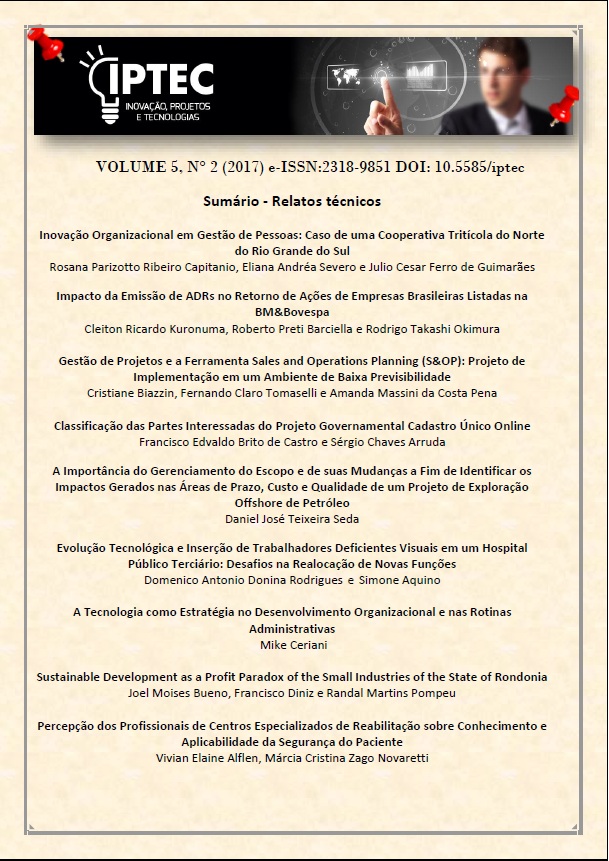Impact of the Issuance of ADRs on the Return of Shares of Brazilian Companies Listed on BM & FBovespa
DOI:
https://doi.org/10.5585/iptec.v5i2.100Keywords:
ADRs, Stock Return, Brazilian Companies.Abstract
In the last decades, there has been an intensification of the capital markets integration process worldwide, which caused a profound impact on business strategies and favored access to international capital (Bell & Rasheed, 2016). One of the instruments that are available to Brazilian companies and which enables them to obtain funds from institutional investors are American Depositary Receipts (ADRs), which are traded in the United States. Although costly, ADRs are expected to bring benefits to the issuers such as: better liquidity, lower volatility, better share prices, as well as an improvement in the company's image (Silveira, Barros & Famá, 2003). The objective of this article is to evaluate the impact of the issuance of NYSE (New York Stock Exchange) ADRs on the stock returns of Brazilian companies listed on the BMF & Bovespa, through linear regression models. Therefore, data were collected from the six organizations that issued ADRs between January 2007 and June 2017 and which fit the objectives of this research - Bradesco, Brasilagro, Eletrobrás, Gafisa, Oi and Santander. The analysis of the results showed that there was a substantial increase in the stock return of three companies - Bradesco, Eletrobrás, and Gafisa - and a decrease in the stock return of two companies – Santander and Oi). One of the companies - Brasilagro - was not considered in the final analysis, since it was found that its linear regression model was not statistically significant for the pre-issuance scenario of ADRs.
Downloads
Downloads
Published
How to Cite
Issue
Section
License
Copyright (c) 2018 Cleiton Ricardo Kuronuma, Roberto Preti Barciella, Rodrigo Takashi Okimura

This work is licensed under a Creative Commons Attribution-NonCommercial-NoDerivatives 4.0 International License.
- Abstract 85
- PDF (Português (Brasil)) 255









